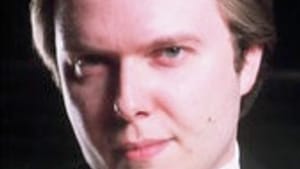Stay in the Loop
BSR publishes on a weekly schedule, with an email newsletter every Wednesday and Thursday morning. There’s no paywall, and subscribing is always free.
Fresh air from the Chamber Orchestra
DAN COREN
What do these composers all have in common?
Haydn, C.P.E. Bach, Beethoven, Carl Maria von Weber, Debussy, Stravinsky, Schoenberg, Mahler, Ianis Xenakis and Terry Riley.
The answer: All are daringly experimental in one way or another. Some were recognized as geniuses in their day; on others, the jury is still out. Haydn, Beethoven and Schoenberg exerted a profound and permanent influence on the ways our culture thinks about music; Debussy and Xenakis used sounds and techniques that nobody had ever thought of before. But the one thing they all unequivocally share is that their music is to be performed next concert season by the Chamber Orchestra of Philadelphia under Ignat Solzhenitsyn.
At first glance, the C.O.P. season doesn’t look all that unusual. It includes:
• A generous serving of Classical repertory (symphonies and piano concertos by Mozart, Beethoven, Schubert, C.P.E. Bach, and Haydn)
• Two concerts of Baroque music
• Several works by Ravel and Debussy
But Solzhenitsyn has also devoted almost half of his repertory to 20th- and 21st-Century composers, including a world premiere of a work by Terry Riley, performed by Riley himself. C.O.P.’s subscription policies are generously flexible, so if you really want to avoid all the unusual stuff, you can. By why would you want to?
If Solzhenitsyn keeps up this sort of programming, perhaps Charles Dutoit’s arrival at the Philadelphia Orchestra won’t stultify Philadelphia concert life as much as I’d feared.
My biggest mistake last concert season as a Broad Street Review contributor was somehow failing to attend any concerts by this C.O.P. It’s an error I won’t repeat. In fact, I’ve already subscribed.
DAN COREN
What do these composers all have in common?
Haydn, C.P.E. Bach, Beethoven, Carl Maria von Weber, Debussy, Stravinsky, Schoenberg, Mahler, Ianis Xenakis and Terry Riley.
The answer: All are daringly experimental in one way or another. Some were recognized as geniuses in their day; on others, the jury is still out. Haydn, Beethoven and Schoenberg exerted a profound and permanent influence on the ways our culture thinks about music; Debussy and Xenakis used sounds and techniques that nobody had ever thought of before. But the one thing they all unequivocally share is that their music is to be performed next concert season by the Chamber Orchestra of Philadelphia under Ignat Solzhenitsyn.
At first glance, the C.O.P. season doesn’t look all that unusual. It includes:
• A generous serving of Classical repertory (symphonies and piano concertos by Mozart, Beethoven, Schubert, C.P.E. Bach, and Haydn)
• Two concerts of Baroque music
• Several works by Ravel and Debussy
But Solzhenitsyn has also devoted almost half of his repertory to 20th- and 21st-Century composers, including a world premiere of a work by Terry Riley, performed by Riley himself. C.O.P.’s subscription policies are generously flexible, so if you really want to avoid all the unusual stuff, you can. By why would you want to?
If Solzhenitsyn keeps up this sort of programming, perhaps Charles Dutoit’s arrival at the Philadelphia Orchestra won’t stultify Philadelphia concert life as much as I’d feared.
My biggest mistake last concert season as a Broad Street Review contributor was somehow failing to attend any concerts by this C.O.P. It’s an error I won’t repeat. In fact, I’ve already subscribed.
Sign up for our newsletter
All of the week's new articles, all in one place. Sign up for the free weekly BSR newsletters, and don't miss a conversation.

 Dan Coren
Dan Coren
